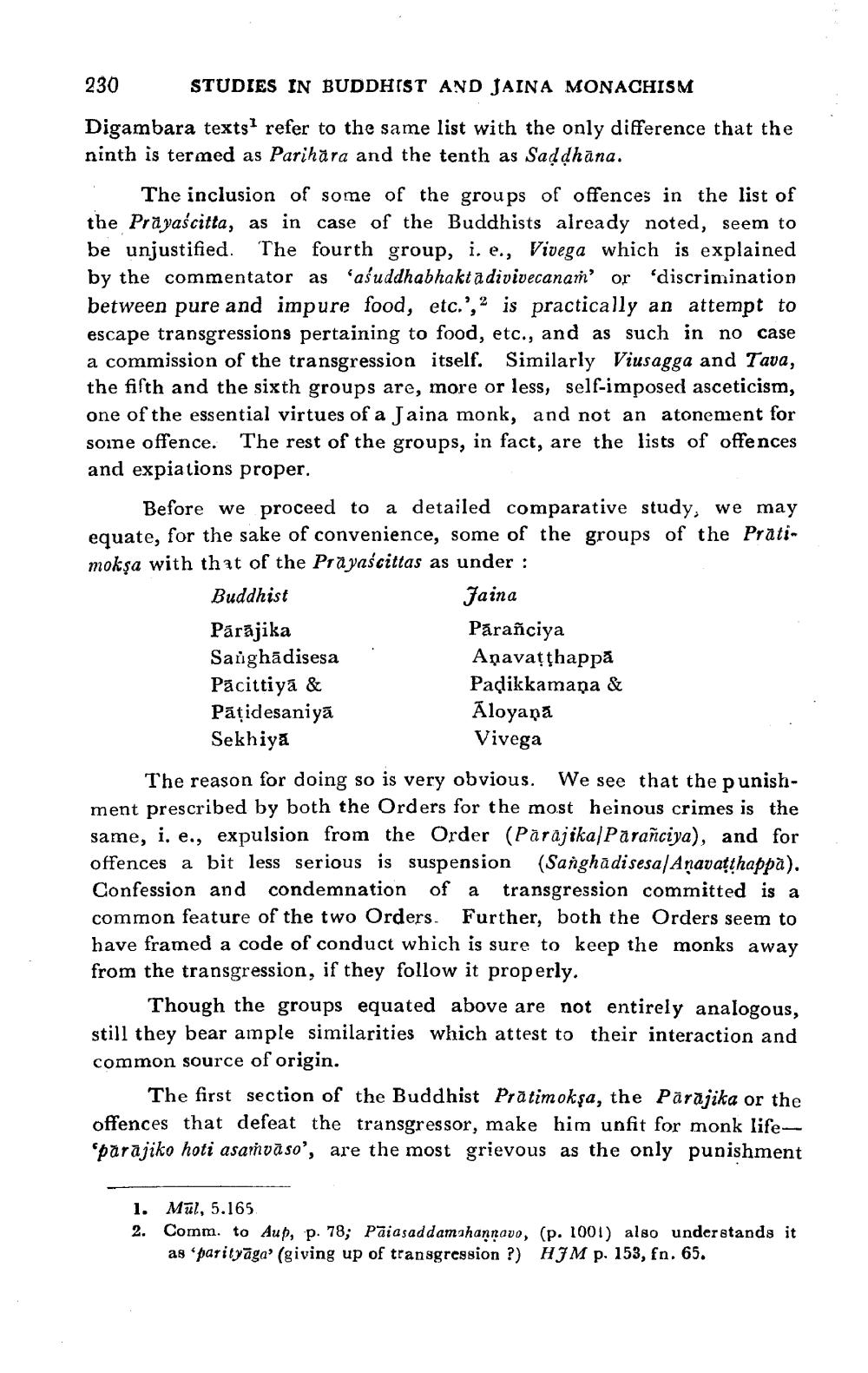________________
230
STUDIES IN BUDDHIST AND JAINA MONACHISM
Digambara texts refer to the same list with the only difference that the ninth is termed as Parihara and the tenth as Saddhana.
The inclusion of some of the groups of offences in the list of the Prayaścitta, as in case of the Buddhists already noted, seem to be unjustified. The fourth group, i. e., Vivega which is explained by the commentator as 'aśuddhabhakt adivivecanam' or 'discrimination between pure and impure food, etc.'," is practically an attempt to escape transgressions pertaining to food, etc., and as such in no case a commission of the transgression itself. Similarly Viusagga and Tava, the fifth and the sixth groups are, more or less, self-imposed asceticism, one of the essential virtues of a Jaina monk, and not an atonement for some offence. The rest of the groups, in fact, are the lists of offences and expiations proper.
Before we proceed to a detailed comparative study, we may equate, for the sake of convenience, some of the groups of the Prati mokşa with that of the Prayascittas as under :
Buddhist
Jaina
Pārājika
Sanghādisesa
Pacittiya &
Pāțidesaniya Sekhiya
Parañciya Anavaṭṭhappǎ
Padikkamana & Aloyaņā
Vivega
The reason for doing so is very obvious. We see that the punishment prescribed by both the Orders for the most heinous crimes is the same, i. e., expulsion from the Order (Parājika|Parañciya), and for offences a bit less serious is suspension (Sangha disesa/Anavatthappa). Confession and condemnation of a transgression committed is a common feature of the two Orders. Further, both the Orders seem to have framed a code of conduct which is sure to keep the monks away from the transgression, if they follow it properly.
Though the groups equated above are not entirely analogous, still they bear ample similarities which attest to their interaction and common source of origin.
The first section of the Buddhist Pratimokşa, the Parajika or the offences that defeat the transgressor, make him unfit for monk life*pārājiko hoti asaṁvaso', are the most grievous as the only punishment
1. Mul, 5.165.
2. Comm. to Aup, p. 78; Paiasad damahannavo, (p. 1001) also understands it as 'parityaga' (giving up of transgression ?) HJM p. 153, fn. 65.




